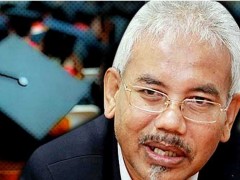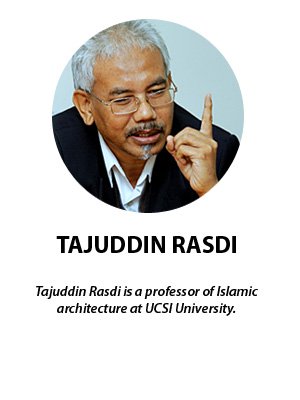Berita

Pressing the reset button on Islam and the academia
Tarikh : 08 September 2018
Dilaporkan Oleh : dsh
Kategori : News
Tweet This

A furore recently erupted over the appointment of Maszlee Malik as president of the International Islamic University Malaysia (IIUM). Critics were quick to cry foul as they felt that Maszlee, being the education minister, might be biased towards the university and violate his own promise of making universities in Malaysia free from political interference.
Although I understand, appreciate and value this important criticism, I wish to take a different stand. I will put forth four arguments why I think we should let Maszlee accept the appointment by the Sultan of Pahang to be the new president of IIUM.
My first argument concerns change. In the book “The Art of War”, the author said if you kill a few soldiers in front of the other soldiers, you will most definitely see immediate change and total loyalty for the duration needed to win the battle.
Malaysians must understand that change in the country is similar to change in our families. Parents will notice that a smack here and there can bring about quick change when children are young, but when they reach adolescence, a more tactful method is required.
The euphoria over the so-called New Malaysia has vanished, leaving many disappointed because change is slow in coming. To me, though, change has already come and will come in future days – but we must be patient and understanding.
This does not mean that we say, “Whatever will be, will be”. We must monitor the subtle changes and, most importantly, monitor the attitudes of the elected leadership. It is not a good idea to criticise the royalty or abolish Mara, or open up UiTM now. Instead, we should instal a new leadership, perhaps a multiracial one, and bring about change from the inside for a decade or so. That Maszlee and the Pakatan Harapan (PH) government are willing to change the universities is enough for now.
Secondly, we are going to witness a great battle for the Malay-Muslim mindset, and it must begin at a university. There is already a precedent set in that a minister like Anwar Ibrahim was president of IIUM. Anwar was there because it was his view that the Malays needed to abandon the racial mindset and adopt an Islamic mindset which is supposed to be colour-blind and more universal in values.
Anwar’s vision of a more liberal and progressive Malaysia may be difficult to achieve in the face of the strong ustaz conservatism in PAS and the racial rhetoric of Umno. The Malays must change, otherwise the country will burn. Islam is the choice, but an Islam that has a universal and global outlook.
Maszlee can be said to be the “second coming” of the spirit of what Anwar and, to a certain extent, Dr Mahathir Mohamad, envisioned.
The non-Malays must understand that the battle for Malaysia lies not only in economics but in the mindset of the Malay-Muslims. With a marriage between Umno and PAS just a few months away, Malaysia will be rocked by a strong conservative Malay-Muslim political force backed by an ignorant Malay populace nodding to every Zamihan-like fanatic, a middle-class academia that does not have a critical view of religion, and narrow-minded madrasah-educated state religious officials.
The only weapons PH have to combat the rising mainstream Islamic extremism that we now see are IIUM and a reinvented Jakim. For 20 years, IIUM has been Umno-ised, its academics left counting their journal marks for promotions. The professors there are useless at championing change in the mindset of Malaysian Muslims, judging by the issues that keep coming up and causing unrest in the country.
The reset button must be pressed on the academic culture and responsibility at IIUM to lead this fight against mainstream Islamic extremism. Maszlee has been in the civil society circuit and has shown himself to be a true academic by challenging the status quo at the cost of promotions and career advancements.
Thirdly, regardless of who the president or vice-chancellor is at any university, the professional fraternity are the ones who are supposed to give real substance to the institution. I have always given one simple piece of advice to aspiring young academics: in order to be a true academic, do not give your loyalty to an institution; instead, give it to knowledge, ideas and the conscience that comes with the two.
Professors at Malaysian universities give complete loyalty to institutions so that they will be conferred with proverbial titles and financial awards. Professors must reach out to the public and change society by making their knowledge and attitudes known to all and sundry because the ordinary layperson will be elected as the people’s representative and perhaps even the prime minister.
Books and media articles, as well as forums upon forums and discourses to enlighten the public must be the order of the day. Nowadays, if I am invited to speak at a public university, only a handful of academics and post-graduate students come. I have made it a practice to invite FMT journalists to all my public talks because public universities do not care whether anyone else attends. The same goes for conferences and seminars. The organising committees do not care who comes as long as they collect hundreds of papers and fees.
Public-funded universities like IIUM are simply big fat overstuffed elephants that keep feeding without giving any meaningful output to society. Maszlee would be in the best position to redraft not only the KPI of professors but also the ridiculous MyRA measures for university rankings.
My 45 books, hundreds of encyclopaedia articles and hundreds of media writings can only be slotted under “other publications”. These three types of writing that changed the Western world are now pushed to the periphery to make way for Scopus journals that keep producing narrow-minded PhD graduates. Uncaring professors producing narrow-minded graduates will send this nation back to the Stone Age. A university should be a beacon of change for society, not a factory to produce workers.
Fourthly, with respect to the claim of political interference, there is an easy answer. As long as public universities are funded by public money from taxes, there had better be “political interference”. Academics at public universities cannot think that they operate in a vacuum. The elected representatives are there to ensure that the public trust the university to do what is best for the people, not the ego and self-interest of academics.
The public will not fund academics’ “pet projects” just because they happen to “like” travelling to conferences and buying new cars. The bottom line is that politicians who are elected must ensure that the public get their money’s worth from the salaries of academics. What is abhorrent is politicians appointing mediocre leaders at universities that set the path to self-interested research, writing and papers. I agree with Gerak that there should be an independent committee to vet candidates for professorship and vice-chancellorship. The education minister can be one voice in this committee, but not the overriding voice.
In closing, I would like to ask our citizens to have patience and trust Maszlee to lead the battle for the Malay-Muslim minds for a few years. Let us see how he performs. If he comes up short, I will be the first to tell him so.
Tajuddin Rasdi is a professor of Islamic architecture at UCSI University.
Read more: https://www.freemalaysiatoday....








